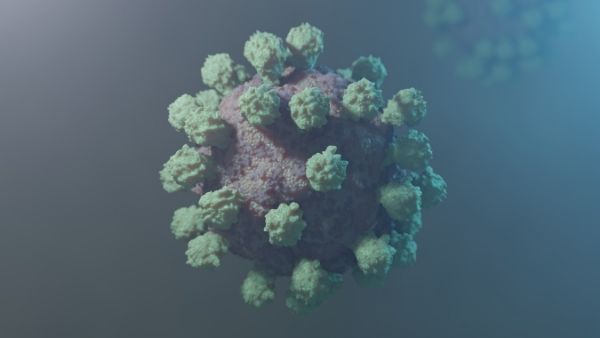Just In
- 2 hrs ago

- 3 hrs ago

- 6 hrs ago

- 6 hrs ago

Don't Miss
- Movies
 Vahbiz Dorabjee On Being Offered Mother Roles; Losing 10 Kgs & Stunning Transformation: I Was Impacting My…
Vahbiz Dorabjee On Being Offered Mother Roles; Losing 10 Kgs & Stunning Transformation: I Was Impacting My… - News
 Rs 4 Crore Cash Seizure Case: BJP Leader Nainar Nagendran To Appear Before TN Police On May 2
Rs 4 Crore Cash Seizure Case: BJP Leader Nainar Nagendran To Appear Before TN Police On May 2 - Finance
 Rs 7.50/Share Dividend: Adani Group Cement Company Reports Strong Q4 Results; Profit Surges 2x YoY
Rs 7.50/Share Dividend: Adani Group Cement Company Reports Strong Q4 Results; Profit Surges 2x YoY - Education
 Tamil Nadu SSLC Results 2024: Number of Ways you can check the Results
Tamil Nadu SSLC Results 2024: Number of Ways you can check the Results - Automobiles
 Bajaj To Offer Chetak Electric Scooter At Lower Price Point: All Details Here
Bajaj To Offer Chetak Electric Scooter At Lower Price Point: All Details Here - Sports
 Bangladesh vs Zimbabawe: Will Shakib Al Hasan Play Home T20 Series In May Or Not?
Bangladesh vs Zimbabawe: Will Shakib Al Hasan Play Home T20 Series In May Or Not? - Technology
 Qualcomm Reveals Snapdragon X Plus Chip for Laptops: 10 Core CPU, On-Device AI, & Much More
Qualcomm Reveals Snapdragon X Plus Chip for Laptops: 10 Core CPU, On-Device AI, & Much More - Travel
 Escape to Kalimpong, Gangtok, and Darjeeling with IRCTC's Tour Package; Check Itinerary
Escape to Kalimpong, Gangtok, and Darjeeling with IRCTC's Tour Package; Check Itinerary
Omicron: How Long Will You Be Contagious? When Can You Be Around Other People After Having COVID?
According to the World Health Organization (WHO), symptoms could manifest anywhere between two days and two weeks following infection in previous variants of COVID-19. However, the incubation period for Omicron is much shorter - between three and five days.
People are believed to be at their most infectious one to two days before they develop symptoms and two to three days after. As a result, Omicron has been able to spread so rapidly since people pass the virus on without being aware they are infected.


When Are People with COVID Most Contagious?
The Centers for Disease Control and Prevention reports that its guidelines have been updated to reflect growing evidence suggesting that transmission of COVID-19 often begins one to two days before symptoms appear and continues for two to three days afterwards [1].
Data from the CDC indicates that there is virtually no risk of transmission after seven days. As for the five- to the seven-day window, there can be some variation depending on the vaccination status, underlying conditions, etc., but overall, the risk drops quite a bit, and the general feeling is that with the masking, etc. the risk is very low.
In the case of individuals without symptoms, CDC guidance states that they are considered contagious at least two days before their positive test.

How Long Is Omicron’s Contagious Period?
According to the Centers for Disease Control and Prevention, COVID is most contagious one to two days before someone experiences symptoms and between two and three days after.
The time it takes for someone to become infected following exposure to COVID is becoming shorter. It is taking less time for symptoms to appear, for someone to become infectious, and for many people to recover. Experts contend that this is partly due to the fact that more people are vaccinated [2].
According to data, most people are no longer infectious seven days after experiencing symptoms or initially testing positive, particularly when vaccinated, and the vast majority are no longer infectious after ten days [3].
Health experts have stated that the official guidelines are inadequate and that they risk spreading the Omicron variant unknowingly by dismissing them as symptoms of a common cold.

Is Omicron Less Severe Than Previous Covid Variants?
The Omicron variant has been found to be far more transmissible than Delta, which in turn was more infectious than prior strains.

Nevertheless, it appears to cause fewer severe symptoms, and risk assessment findings show a reduction in the relative risk of hospitalisation for adult Omicron cases compared with Delta.
Researchers have found that it appears to cause much less damage to the lungs than previous variants, which caused scarring and respiratory difficulties. According to research on mice and hamsters, Omicron caused less-damaging infections, often confined largely to the upper respiratory tract: the nose, throat, and windpipe [4].
However, the WHO has advised against referring to the strain as mild.
In spite of the fact that Omicron appears to be milder than Delta, especially among those who were vaccinated, this does not imply that it should be classified as mild, WHO director-general Tedros Adhanom Ghebreyesus said in a Geneva briefing. Omicron, like previous variants, is hospitalising people and killing them.
Despite the fact that Omicron and Delta may seem like a cold to most of us, they can still be deadly or cause long-term symptoms that disrupt daily life, especially for those who have not been vaccinated or are immunocompromised.


How Do I Know If I Have COVID-19, The Flu, Or Just A Cold?
Since the Omicron variant of COVID-19 is the dominant strain, distinguishing it from other strains is becoming more challenging. In spite of having been vaccinated and boosted, you can still develop symptoms. Still, these are more likely to be mild to moderate in severity. There is still the risk of severe symptoms that could be life-threatening for those who are not vaccinated.
People experiencing flu-like symptoms should assume that they have COVID. Consider getting tested or conducting a home test if possible. If the test is positive, you should remain at home for five days. Although you had a negative test when your symptoms began, you should still stay at home for two or three more days to monitor your symptoms and prevent the spread of the infection [5][6].
This is because there is a possibility of false negatives with antigen tests, which means you can still have COVID even if your test is negative. Therefore, you may wish to consider testing again before leaving the house. Once you are ready to leave home, continue to wear the mask for at least five additional days.

When Can You Be Around Other People After Having COVID?
If you have symptoms, you can be around others when you have isolated yourself for five days and have stopped exhibiting symptoms. However, as a precaution, you should continue to wear a mask for five days following the end of your symptoms [7].


When Should You Call A Doctor?
Those who have COVID-19 or may have it are advised to watch out for warning signs and to seek medical attention immediately if they experience any of the following symptoms [8]:
- Breathing difficulties
- Persistent pain or pressure in the chest
- New confusion
- Inability to wake or stay awake
- Skin, lips, or nail beds with pale, grey, or blue hues, depending on skin tone
The CDC states that this list does not include all possible symptoms. Therefore, please contact your physician if you experience any other symptoms that are serious or concerning to you.
-
 healthXBB.1.16: Symptoms; Are Vaccines Useful? WHO Concerned Over Recent COVID Spike In India
healthXBB.1.16: Symptoms; Are Vaccines Useful? WHO Concerned Over Recent COVID Spike In India -
 disorders cureCommon COVID Symptoms In Fully Vaccinated Individuals: What You Should Know
disorders cureCommon COVID Symptoms In Fully Vaccinated Individuals: What You Should Know -
 wellnessMild COVID Linked To Life-Threatening Blood Clots, Increased Risk Of Cardiovascular Disease; Study
wellnessMild COVID Linked To Life-Threatening Blood Clots, Increased Risk Of Cardiovascular Disease; Study -
 wellnessCOVID-19 Variants In India: New COVID Variant May Pose Threat To Elderly People
wellnessCOVID-19 Variants In India: New COVID Variant May Pose Threat To Elderly People -
 basicsCovid-19 Linked To Early Onset Of Periods: What You Need To Know
basicsCovid-19 Linked To Early Onset Of Periods: What You Need To Know -
 wellnessCOVID XBB Variants Of Omicron In India: What You Should Know
wellnessCOVID XBB Variants Of Omicron In India: What You Should Know -
 disorders cureNew Omicron Subvariant BQ.1 Detected In Maharashtra: What You Should Know
disorders cureNew Omicron Subvariant BQ.1 Detected In Maharashtra: What You Should Know -
 disorders cureOmicron BF.7 In India, Risk Of Fresh Wave During Diwali: What You Should Know
disorders cureOmicron BF.7 In India, Risk Of Fresh Wave During Diwali: What You Should Know -
 wellnessOld Age Is A Risk Factor For Pneumonia Due To The Omicron Variant: Study
wellnessOld Age Is A Risk Factor For Pneumonia Due To The Omicron Variant: Study -
 disorders cureWhat Is ‘Centaurus,’ New Fast-Spreading Covid Variant: Everything You Need To Know
disorders cureWhat Is ‘Centaurus,’ New Fast-Spreading Covid Variant: Everything You Need To Know -
 health75 Years Of Independence, 75 Days Of Free COVID Booster Shots; For Everyone Aged 18-59 From 15 July
health75 Years Of Independence, 75 Days Of Free COVID Booster Shots; For Everyone Aged 18-59 From 15 July -
 wellnessWhat Are The Health Risks Of Getting COVID The Second Or Third Time? 7 Important Points
wellnessWhat Are The Health Risks Of Getting COVID The Second Or Third Time? 7 Important Points


 Click it and Unblock the Notifications
Click it and Unblock the Notifications



